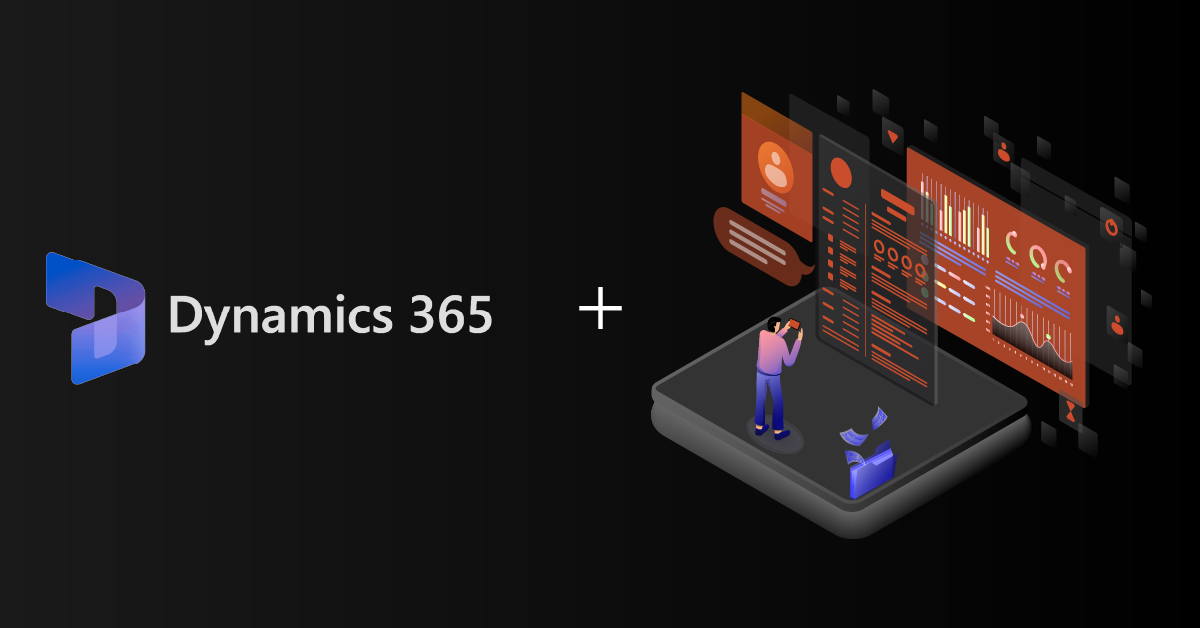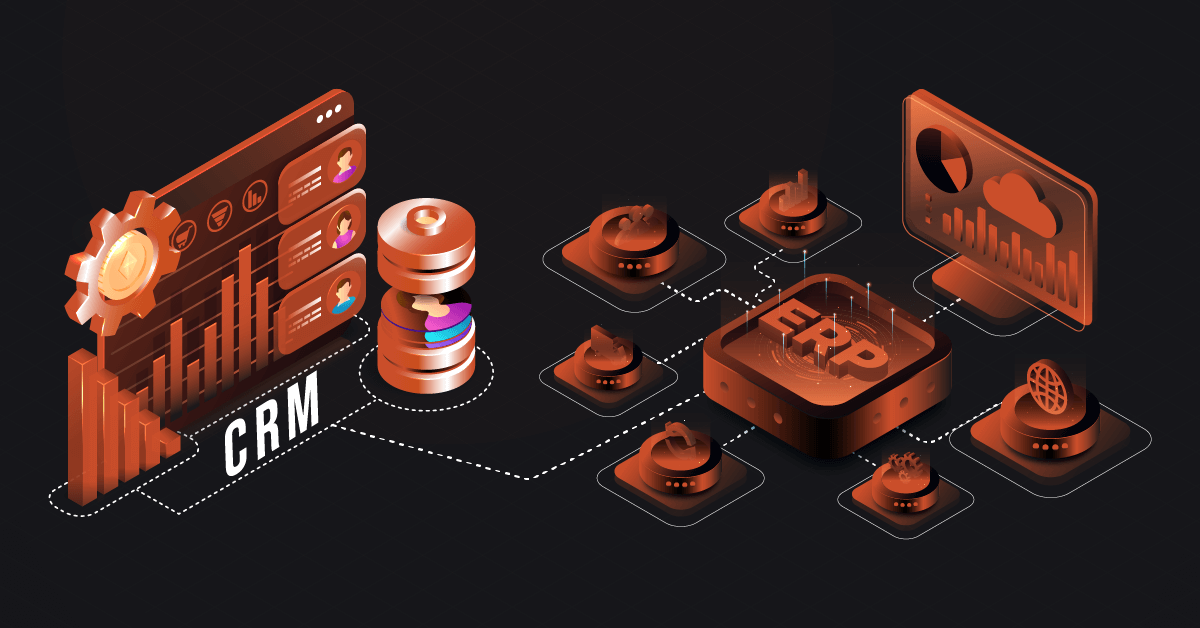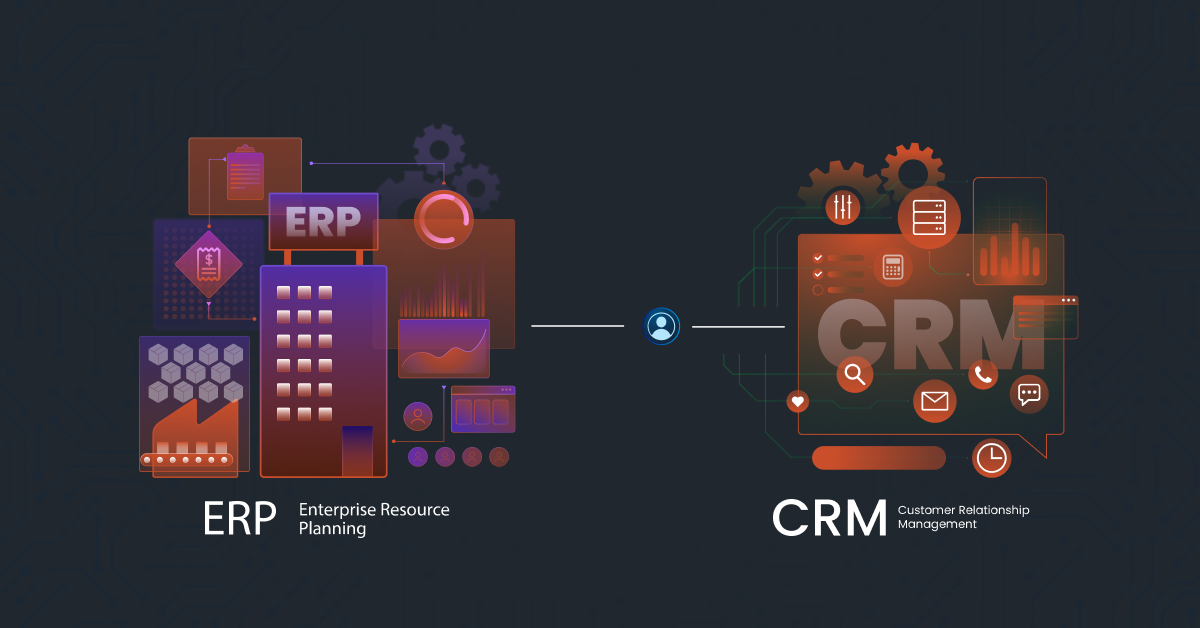Integrating your CRM (Customer Relationship Management) and ERP (Enterprise Resource Planning) systems is crucial for effectively managing customer data, financial records, and other critical business information.
By seamlessly connecting these two platforms, you can optimize your business processes and leverage the capabilities of both systems. To help you get started, we have compiled a comprehensive guide for Microsoft Dynamics CRM data integration and Microsoft Dynamics 365 EDI integration .
How to Integrate Microsoft Dynamics ERP and CRM
The primary methods of Microsoft Dynamics CRM data integration include the following:
Custom Integration
In this type of integration method, you can build your custom integration with the help of a developers team adept in technical skills. This requires matching the CRM’s API (application programming interface) code to be integrated with the Microsoft Dynamics ERP. However, this method can be both time and resource-intensive. Also take look at the difference between data integration and application integration
Native Integration
Vendor-built or native integrations are out-of-the-box integrations that enable connection between specific business applications. For instance, vendor-built tools may help connect your existing CRM with your Microsoft Dynamics ERP. The primary drawback of this integration is the limitation in use cases with little room for customization.
Integration Platform as a Service (iPaaS)
iPaaS is a cloud-based solution that helps build seamless integrations between applications, data sources, systems, data warehouses or databases, and others. It enables businesses to create automated, seamless workflows regardless of where the applications reside—on-premise, or in the cloud. Plus, it eliminates the need for installing or managing hardware, making it flexible and scalable.
Also read: iPaaS Explained [+Use Cases and Benefits]
Benefits of Microsoft Dynamics CRM Data Integration
From a broader perspective, integrating Microsoft Dynamics ERP and CRM systems helps in breaking down information silos between sales and finance. It also simplifies processes for your employees, reducing manual errors and equipping sales or accounts receivable teams to focus on more strategic growth.
Here are some key benefits of integrating ERP and CRM.
Automation Throughout Customer Lifecycle
ERP and CRM integration helps automate business processes of the customer lifecycle. It provides a 360-degree view of the customer data, connecting all relevant information including customer orders (invoices, orders, etc.) supply chain (inventory, prices, etc.), finance (accounts receivable, etc.), and others.
For instance, when a lead closes in the CRM, a sales order will be created in Microsoft Dynamics ERP. The information will be synced automatically between systems, eliminating any potential error or duplication. Real-time updates on prices and products will be shared with the sales team through CRM, leading to faster order fulfillment and revenue recognition.
Personalized Customer Experiences
Following ERP CRM integration, you can gain actionable insights into your customer needs. With the right data in hand, you can tailor experiences and offerings for your customers. You can integrate this data with online, third-party, and offline sources to create your in-depth customer profile. This can help you create custom key messaging and offers across your digital platforms.
Optimization of Value Chain
With integration, you can use data effectively throughout your value chain. With a 360-degree view of customer data, it becomes easier to make adjustments based on market trends, predict customer demand, communicate better, improve customer support, and much more.
Improved Efficiency
Often, when multiple documents are to be sourced from different sources, order processing can be delayed. By automating this process of sourcing documents, businesses can improve order-to-cash workflow and simultaneously avoid delays in order fulfillment, delivery, and invoice processing. This can significantly improve the turnaround time.
Increased Sales
Integrating your CRM and ERP solution significantly reduces the manual and repetitive tasks for your sales representatives, enabling them to concentrate efforts on activities that help in closing sales.
Enhanced Employee Collaboration
Collaborating across different departments becomes more effective when the team is connected and integrated, as everyone is informed and able to access centralized data. When real-time sales data is continuously shared and utilized, regardless of the department, employees can make well-informed decisions.
Recommended read: CRM Data Integration: How It Works With Other Systems
Typical Challenges in Integrating ERP and CRM
You may encounter some issues during your integration project due to various reasons.
Lack of Technical Expertise
Integrating ERP and CRM systems can be a big project that often needs a lot of IT resources and tools. Because of this, setting up these systems can take a long time.
Data Silos
When data is kept in disparate systems, it often doesn’t match up due to a lack of standardization. This can be due to repeated manual data entry, not having a standard way to handle data fields, or company mergers and acquisitions.
Complexity in ERP and CRM
The integration can be complex due to the involvement of multiple systems. Usually, an ERP ecosystem includes SaaS Apps, cloud applications, integration tools, and legacy on-premise ERP. Whereas, a CRM ecosystem consists primarily of cloud-based applications. This warrants extensive expertise to integrate systems outside of the ecosystems.
Legacy Integrations
Many businesses still rely on old, custom-coded integrations that connect different systems directly (point-to-point). While this might have been a quick and cheap solution at first, over time, this kind of custom coding can limit how much you can change and grow the system.
Achieving Customer Success with DCKAP Integrator
DCKAP Integrator is a cloud-based integration platform crafted especially for distributors. You can easily connect Microsoft Dynamics ERP with CRM, ecommerce platforms, PIM (product information management), and other systems to, automate and sync data in real-time. Low-code and easy-to-use, DCKAP Integrator is equipped with drag-and-drop functionality, pre-built connectors, plug-and-play flow designers, and an intuitive and user-friendly interface.
You can explore more about the market-leading data integration solution here:
Here’s what you can expect when using DCKAP Integrator for Microsoft Dynamics data integration.
- Simplified data management with unified, real-time customer data
- A singular view of both online and offline customer data
- Improved data accuracy and speed as data changes in Microsoft Dynamics are immediately reflected in the integrated CRM application
- Improved customer service and experience using actionable insights
- Enhanced customer satisfaction through improved response and accuracy
- Data-driven decisions around sales focus and efficiency
- Synchronization of data in real-time, ensuring the most relevant, up-to-date information across your systems, reducing manual work, and improving accuracy
- Easier trend and behavior analysis to improve and streamline your approach to customers and sales
- Improved lead tracking with logged and synchronized customer data, including interactions and purchases
- Encrypted and secure customer transactions and data
Related: 25 Best SaaS Integration Platforms & Solutions
Winning Strategy for Microsoft Dynamics CRM Data Integration
Every business is unique and has its own specific requirements, but they all share one key need—they must find an integration platform that can effectively handle their current and future integration needs. A good platform acts like a central hub, supporting all the different ways a business might need to connect its systems and data.
This includes integrating with other large businesses (B2B), different applications, cloud-based services (SaaS), and large sets of data. Additionally, this platform should be able to work with various data types and formats. Having such a versatile and centralized integration platform is a crucial part of any successful strategy for integrating Microsoft Dynamics ERP and CRM.
Integrating Microsoft Dynamics ERP and CRM systems using iPaaS solutions such as DCKAP Integrator offers a transformative solution for businesses. iPaaS simplifies the integration of diverse systems, breaking down data silos and ensuring real-time data flow. This leads to enhanced operational efficiency and accuracy, facilitating better decision-making and improved customer relationships, crucial for success in today’s dynamic digital business landscape.
To know more about successful customer stories and see which pricing plan fits you best, get in touch with us today.
Contents




